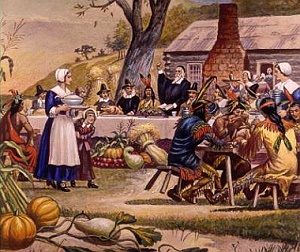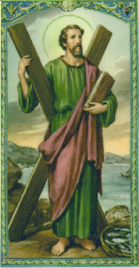We ask you, urgently: don’t scroll past this
Dear readers, Catholic Online was de-platformed by Shopify for our pro-life beliefs. They shut down our Catholic Online, Catholic Online School, Prayer Candles, and Catholic Online Learning Resources—essential faith tools serving over 1.4 million students and millions of families worldwide. Our founders, now in their 70's, just gave their entire life savings to protect this mission. But fewer than 2% of readers donate. If everyone gave just $5, the cost of a coffee, we could rebuild stronger and keep Catholic education free for all. Stand with us in faith. Thank you.Help Now >
Prop. 8 Judge: 'What Judges Do and Must Do Is ... Move the Strike Zone'
FREE Catholic Classes
Judge Vaughn Walker, the now-retired federal judge in San Francisco who nullified California's Proposition 8 in 2010, said if judges really are umpires, they must sometimes "move the strike zone" in order to champion social issues like same-sex marriage. Walker said federal judges must "reflect the common understanding of the day" and that "clear and fixed legal rules" do not exist.
Highlights
CNSNews (www.cnsnews.com)
9/18/2012 (1 decade ago)
Published in U.S.
Keywords: Judge Vaughn Walker, Proposition 8, gay, homosexual, gay marriage, judicial activism, Pete Winn
WASHINGTON, DC (CNSNews.com) - Judge Vaughn Walker, the now-retired federal judge in San Francisco who nullified California's Proposition 8 in 2010, said if judges really are umpires, they must sometimes "move the strike zone" in order to champion social issues like same-sex marriage. "Case by case, what judges do and must do is take account of the pitcher and the batter in the legal arena, watch the windup, the throw, the curve, and the delivery and then, where they believe appropriate, move the strike zone," Walker wrote on Aug. 28 in the University of Illinois Law Review. But Walker, flouting Justice Antonin Scalia and other strict constructionists, said that "judges not only make law, but cannot avoid doing so." "Many judges and politicians say that judges should act like umpires in the judicial arena and simply 'call balls and strikes,'" Walker wrote in the article, titled Moving the Strike Zone. "These judges and politicians have convinced a large portion of the U.S. public that judges should act this way and, therefore, should not make law but instead interpret the Constitution using so-called 'originalism' or 'strict constructionism.' But is it even possible for a judge to simply act as an umpire?" Walker wrote In 2010, Walker overturned California's Proposition 8, ruling that the voter-approved ballot initiative violated the Constitution's equal protection clause by defining marriage to be the union of one man and one woman. In his article, Walker said federal judges must "reflect the common understanding of the day" and that "clear and fixed legal rules" do not exist. "There is no fixed 'strike zone,'" Walker wrote. The former chief federal judge for the Northern District of California, Walker has drawn criticism for not disclosing his homosexuality until after he retired from the federal bench in 2011 -- not during the 2010 trial on same-sex marriage. In the article, Walker said judges are well-suited to "reject or correct" laws that are based on "discredited understandings" or "dogmas born of myths and unsubstantiated beliefs." "Courts are particularly well suited in some situations for law making even on fundamental issues," he wrote. "Unlike elected officials, judges, particularly federal judges, are not looking to the next election for vindication or retention of their positions," he wrote. "Although a courtroom is hardly a laboratory suitable for scientific experimentation, factual premises that underlie many social, economic, and political policies that have been legislatively enacted are exposed in a courtroom in way that is not possible elsewhere. "In the hurly burly of electoral politics, in the halls and hearing rooms of legislative bodies, long-winded and evasive assertions are rarely challenged effectively. But a courtroom is different. "One prominent litigator has said that the witness stand is a lonely place. It is especially lonely for someone who spouts a racial or gender theory, propositions without credible support, or dogmas born of myths and unsubstantiated beliefs. Yet each of these has been and continues in the present day to be the support for so-called legislative findings or facts that have been enacted into law and that treat some citizens differently and without reason. "In a courtroom, these findings or facts can be exposed for what they are - propositions born of misunderstanding, bigotry, or intolerance," Walker wrote. The image of the judge being an umpire comes from Chief Justice John Roberts, who, during the opening day of his confirmation hearings in 2005, said his "job" as a Supreme Court justice was "to call balls and strikes, and not to pitch or bat."
---
CNSNews.com is a division of the Media Research Center, a not-for-profit 501 (c)(3) organization. Like National Public Radio and the Public Broadcasting System, CNSNews.com is able to provide its services and information to the public at no cost, thanks to the generous support of our thousands of donors and their tax-deductible contributions.This article is reprinted with permission.
Join the Movement
When you sign up below, you don't just join an email list - you're joining an entire movement for Free world class Catholic education.

-

-
Mysteries of the Rosary
-
St. Faustina Kowalska
-
Litany of the Blessed Virgin Mary
-
Saint of the Day for Wednesday, Oct 4th, 2023
-
Popular Saints
-
St. Francis of Assisi
-
Bible
-
Female / Women Saints
-
7 Morning Prayers you need to get your day started with God
-
Litany of the Blessed Virgin Mary
Daily Catholic
 Daily Readings for Saturday, November 30, 2024
Daily Readings for Saturday, November 30, 2024 St. Andrew the Apostle: Saint of the Day for Saturday, November 30, 2024
St. Andrew the Apostle: Saint of the Day for Saturday, November 30, 2024 Prayer for Faithful Departed: Prayer of the Day for Saturday, November 30, 2024
Prayer for Faithful Departed: Prayer of the Day for Saturday, November 30, 2024- Daily Readings for Friday, November 29, 2024
- St. Saturninus: Saint of the Day for Friday, November 29, 2024
- Psalm 31 (the Second Penitential Psalm): Prayer of the Day for Friday, November 29, 2024
![]()
Copyright 2024 Catholic Online. All materials contained on this site, whether written, audible or visual are the exclusive property of Catholic Online and are protected under U.S. and International copyright laws, © Copyright 2024 Catholic Online. Any unauthorized use, without prior written consent of Catholic Online is strictly forbidden and prohibited.
Catholic Online is a Project of Your Catholic Voice Foundation, a Not-for-Profit Corporation. Your Catholic Voice Foundation has been granted a recognition of tax exemption under Section 501(c)(3) of the Internal Revenue Code. Federal Tax Identification Number: 81-0596847. Your gift is tax-deductible as allowed by law.






 Daily Readings for Saturday, November 30, 2024
Daily Readings for Saturday, November 30, 2024 St. Andrew the Apostle: Saint of the Day for Saturday, November 30, 2024
St. Andrew the Apostle: Saint of the Day for Saturday, November 30, 2024 Prayer for Faithful Departed: Prayer of the Day for Saturday, November 30, 2024
Prayer for Faithful Departed: Prayer of the Day for Saturday, November 30, 2024

